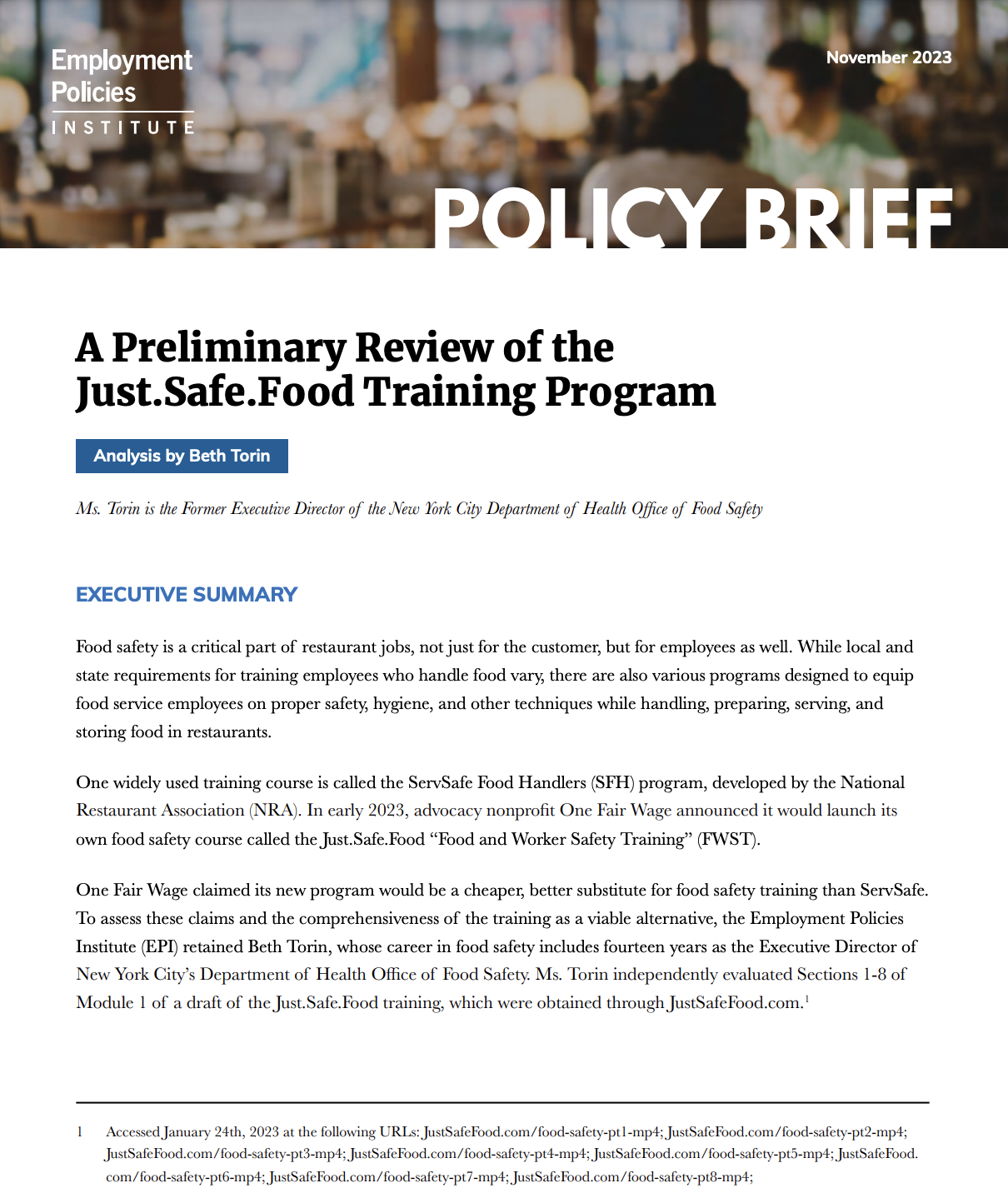A Preliminary Review of the Just.Safe.Food Training Program
Abstract
Food safety is a critical part of restaurant jobs, not just for the customer, but for employees as well. While local and state requirements for training employees who handle food vary, there are also various programs designed to equip food service employees on proper safety, hygiene, and other techniques while handling, preparing, serving, and storing food in restaurants.
- Misleading or inadequate training visuals
- Inaccurate terminology related to industry standards
- Missing or inaccurate training content, including on topics such as hazards causing foodborne illness, handwashing, and proper glove usage

